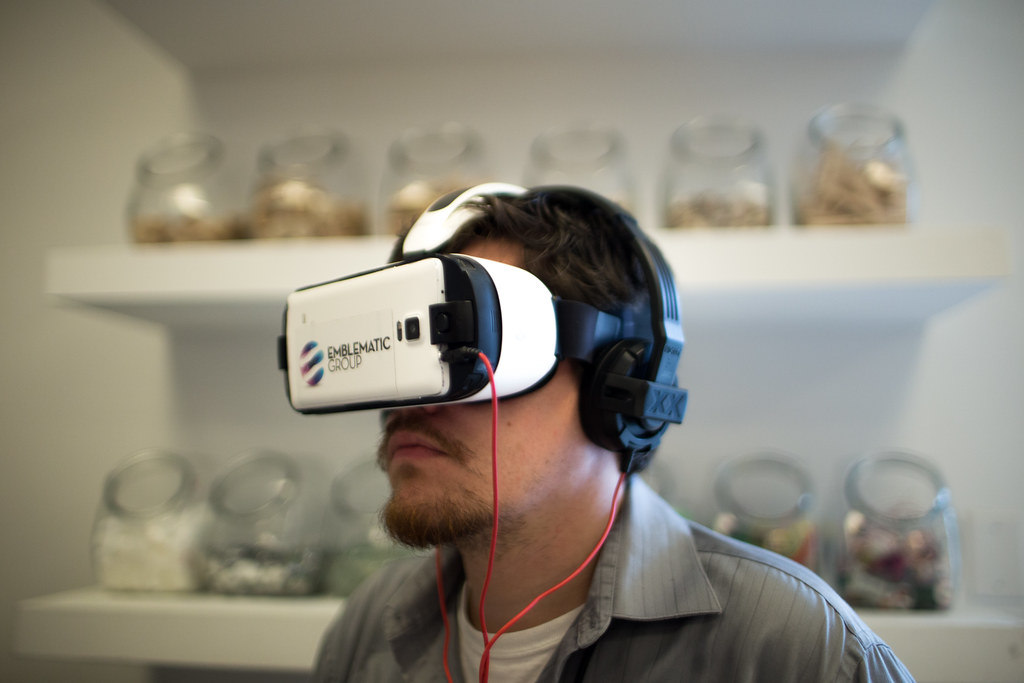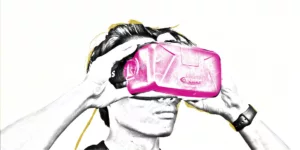Virtual and augmented reality may not be available to everyone yet, but it is very possible that gear like the Oculus Rift will become more popular in the very near future. To see what we can expect over the coming years, we thought we’d take a look into how VR could potentially influence each and every one of us:
iGaming
Right now, introducing VR into our already robust gaming systems can be a costly endeavor. However, we do have access to semi-immersive VR glasses/goggles and data gloves that can be purchased at a reasonable cost. The glasses serve as display devices, much like wearable computer monitors, and work with the input from data gloves so that the user can interact with what they see.
As the technology develops and becomes more accessible, prices are sure to fall and more people will be able to enjoy a fully immersive experience. This means that players will get to engage with online games in an entirely new way. For example, as explained in Jeffrey Lande’s article The Future of Online Poker on bgo.com, the game could potentially look very different.
“A virtual reality poker game will not just mimic a live poker game,” Lande says, “but also augment it in many ways to improve social interaction, with customizable avatars and interactive props.” He adds that the spectator experience in VR poker will allow everyone who is interested in poker to interact with players and other members of the audience like never before. This will be the case in most online games, particularly at online casinos like bgo, games providers including Big Fish and even at online bingo sites such as Game Village or Swanky Bingo.
Business

One of the areas VR will have the most influence on is business, as there are so many directions brands, companies and the media can take it in. Firstly, brands will most probably place advertisements within VR systems, creating story-driven experiences that could potentially change the relationship between them and their audience from passive to active participants.
Meanwhile in the office, teleconferencing will surely be transformed as flat-screen monitors and projectors are replaced with VR that may one day allow users to project their entire bodies. It’s possible that the human component will become so strong that it will eclipse the technology, so that it feels that a VR individual is really in the room. This will then have an impact on remote workers and telecommuting, as one could simply enter an office without actually being there.
Finally, e-commerce sales will undoubtedly go up, as consumers will be able to see the products as though they already owned them. Patrons will “see” if clothes fit well and whether furniture will work in their homes. Plus, real estate sales are sure to benefit due to similar reasons, as potential buyers will be able to inspect the property via their VR devices without having to book a viewing.
Healthcare
Healthcare providers around the world are already adopting VR technology to improve surgery, treatments, robotics, education and numerous other areas of the medical field. Arguably the largest benefit of VR in healthcare is that medical staff are able to adopt new skills and perform complex tasks by running simulations on programs such as HumanSim rather than practicing on living patients.
VR is also being used to perform diagnostics alongside long-established equipment like MRI machines to aid specialists, and surgeons have already started streaming live operations to students via VR headsets. Following the surgery, patients are also able to use VR technology to lessen their pain as the University of Washington HITLab have created a VR system that distracts patients from their discomfort.
As for psychological care, VR is being used to help treat phobias, PTSD and anxiety through carefully constructed simulations. Usually, these systems are used in exposure therapy where the patient is placed in an environment that is likely to trigger uncomfortable reactions. However, since it is only VR the patient always has a professional with them and is never unsafe.
As time passes and technology progresses, each of these systems is sure to improve and transform the way healthcare is provided. Like in the iGaming and business industries, there is no limit to how much VR in the healthcare system can impact our daily lives. Needless to say, we live in a very exciting time.








